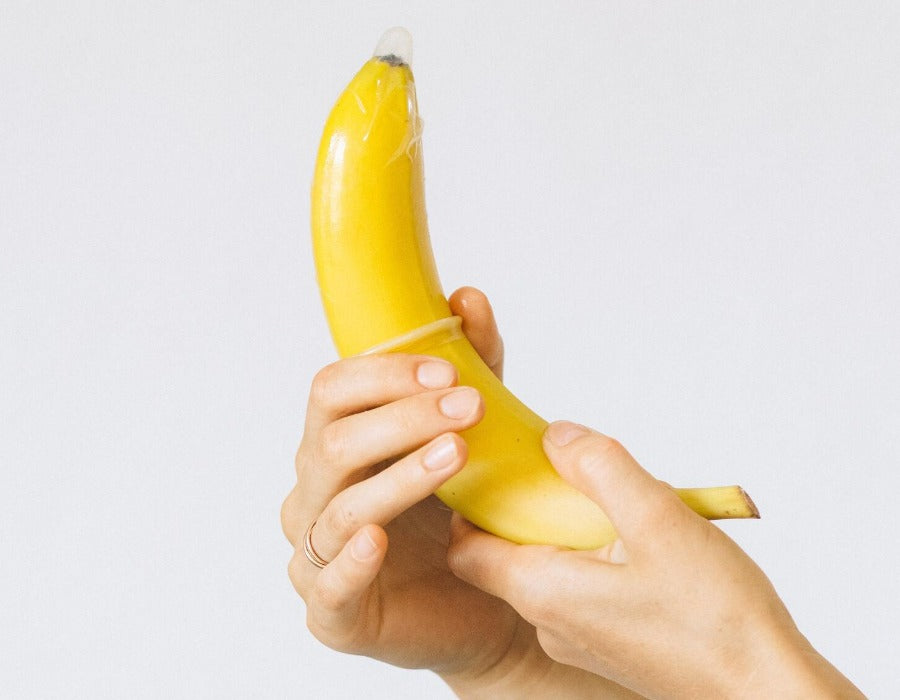You may have found yourself living out of your partner’s pocket for the last year and a half. With the world on lockdown, time spent with partners has increased exponentially - from shared home offices to isolation periods, chances are you and your significant other have seen more of each other than ever before. You’ve probably collectively spent more time binge-watching Netflix box sets and ordering take-out rather than going out.
The phrase separation anxiety might be one you’ve previously used in a jokey off-the-cuff way when thinking about the last time you saw your dog or your friends. But actual separation anxiety is quite different and can have a serious impact on your mental state. It is just as important to deal with separation anxiety post-pandemic and look after your mental and emotional health as your overall health!
Having spent every waking moment of every day with each other, your relationship may have moved faster than usual if you got to know each other during the pandemic, with no distractions from the outside world.
Or you might have been happily married when the world was put on lockdown, but now spent more time than ever before with your spouse and can’t remember what it was like before. The thought of being stuck in the house with your partner for over a year might have previously sent shivers down your spine, but now it seems to have become your normal. So how do you begin adjusting yourself as the world adjusts again?
With restrictions easing and vaccine rollouts you will soon go back to telling each other about your days rather than living them together - you might have even done this already. Whether work concerns, health, or personal, many people have expressed anxieties about the world opening up. And just like all the puppies bought during lockdown, you might find yourself more clingy with your partner than ever before. Readjusting to a pre-pandemic schedule might feel lonely, overwhelming and stressful.
It is important to note that couples do need space from one another and being together constantly is not an ideal, healthy relationship. Space will be good for personal growth and could result in some hot sex and feelings of closeness.
On average forming new habits takes 66 days, which means hopefully you will find yourself adapting to your new day-to-day routine within a few months. But this will differ for everyone, and the best way to go about it is not to put too much pressure on yourself. Let’s dive into how your relationship can survive separation anxiety post-pandemic.
What is separation anxiety?
Separation anxiety is pervasive anxiety about being away from your loved ones, which can be triggered by stress, trauma, or changes in the environment. Something that most people have struggled with this last year to some extent.
Common symptoms include:
- Unfounded fears that your loved ones will be injured
- Extreme and persistent hesitancy to leave your loved ones
- Difficulty sleeping alone
- Depression or anxiety attacks related to any of the above
How can you deal with separation anxiety post-pandemic?
Manage expectations
David Bennet, counselor and relationship expert at Double Trust Dating states: "It's important to manage expectations because if you expect too much from a relationship, you'll just be let down," and as things in the world are changing your expectations might need to as well.
The amount of free time you now have has probably changed since the beginning of 2020 - with the world opening back up people are spending more time with friends, work colleagues and catching up on all the things they’ve yearned for during the last 18 months.
Yet you and your partner need to make sure you are on the same page about what to expect now that you might be spending more time apart and out of the house. We all have lots of catching up to do with people in the outside world so ensure you are both on the same page. If you can only give a phone call once a week then let your partner know, and make sure this works for them too. A relationship is usually a two or more way street!
If you have widely different expectations, chances are one of you will be disappointed so negotiating what works for you both is important. It could be as simple as checking in with each other via text once a day, but this small act could ease feelings of separation anxiety massively.

Make time for you and your partner
Your rituals will likely change. Where you might have had the luxury of a lunchtime walk together during home working you now might be on other sides of the city! However, you will still have a little time to spend enjoying each other’s company, if you adequately put time aside.
And if you don’t have the time, take suggestions from licensed marriage and family therapist Rajani Venkatraman who encourages busy couples to keep the romance going with small gestures. This could be leaving love notes, helping make your partner’s life easier, or dropping them a cute-sy text out of the blue.
If you or your partner are going back to doing long distances then ensure you make time for each other. However, your long-distance dates look, making time for the occasionally sexy facetime date or Netflix stream will ease your feelings of longing.
Communicate with your partner
Being around someone 24/7 might have meant you can sense their every mood and move, from sleeping habits to how often they go to the toilet. But now you find yourselves not living on top of each other, having conversations with other people, being outside! And for some, this might serve as a welcome relief but for others, there might be feelings of uncertainty about the whole situation.
If this change in your day to day seems scary and anxiety-inducing you should let your partner know. You will be able to navigate the outside world and time away from each other together - to make your relationship stronger and happier for both of you. A balanced relationship relies on time apart and time together, so you want to ensure you aren’t dependent but you aren’t totally independent.
Practice self-care
If you are finding everything a little overwhelming that is ok! The last year has been overwhelming enough, and as creatures of habit, we have got used to the new ‘normal’. With much uncertainty in the air, you need to make sure you are taking care of yourself during challenging times. Whatever your self-care rituals look like check in and find ways to help manage your emotional and physical health.
Doing this will not only lessen your separation anxiety but also make you feel good. Of course, it’s ok to reach out to your partner but seeking comfort in yourself is invaluable. You could try self-soothing through meditation, picking up an old hobby - or trying a new one!
Seek professional help
Therapy is best used as a preventative so don’t hesitate in seeking extra support from someone outside of your day-to-day if this is all a bit much. The pandemic has taken a toll on people’s mental health and a lot of people are suffering from nervous energy and feelings of discomfort - seeing a professional who knows how to navigate all of this might make it easier.
Limit screen time and media consumption
Doomscrolling (spending excessive time on social media) has become an all too common pastime for many, closely monitoring social media and the news can impact your mental health. With the world opening back up you might be all too tempted to sit and scroll as you see all the fun things everyone is doing. But this isn’t doing you any good, or your mental health. Reducing screen time is a realistic way to manage feelings of anxiety whether they are relationship-focused or not!
Acknowledge your feelings and ensure all lines of communication are open with your partner to navigate the changes your relationship is likely to go through!















































